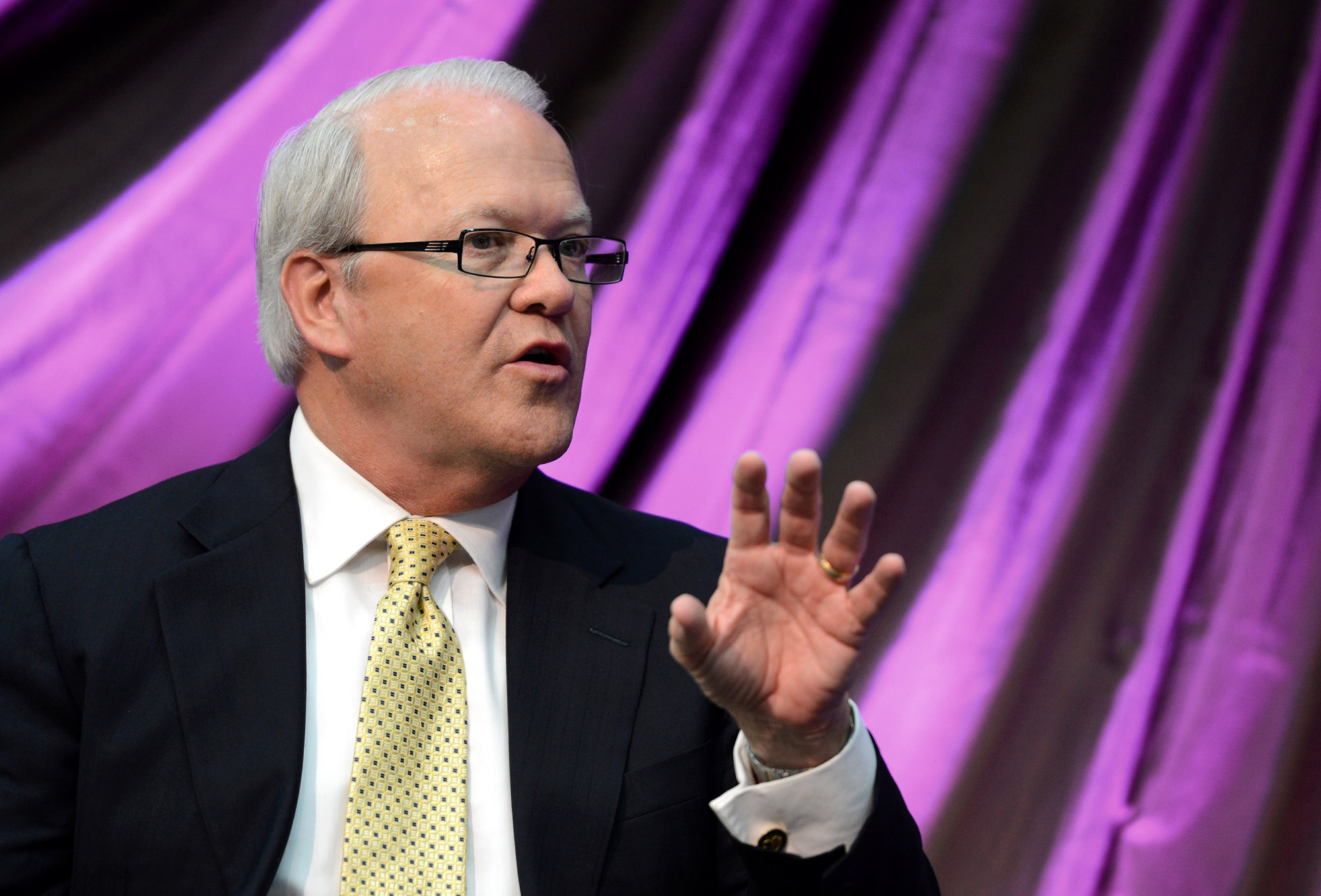
BALTIMORE (BP) — While economic woes have slowed the growing ethnic diversity at state levels in the Southern Baptist Convention, panelists at the Cooperative Program exhibit, held during the SBC annual meeting in Baltimore, discussed intentional efforts to include ethnics in Convention leadership.
The economy has caused a large number of individuals to lose their jobs at state conventions across America, including many Hispanics and African Americans, Frank Page, president and CEO of the SBC Executive Committee, told panelists.
At the same time, lackluster Cooperative Program giving percentages by many ethnic churches has excluded many from being elected to serve on boards of state or national agencies and entities, he said. “That has kept many from even being considered. We are working to change that.”
Many ethnics give very strongly to their own ethnic fellowships and lack understanding of how the Cooperative Program works, Page told Ed Stetzer, who moderated the panel, “Ethnicity and Diversity in the SBC.”
One of the “untold stories” of the SBC is the work of four ethnic advisory councils he has appointed to suggest ways to increase involvement, education, and understanding of ethnics in the SBC toward a goal of reaching every racial and ethnic group in America with the Gospel, Page said as Southern Baptists gathered for their June 10-11 annual meeting.
Edgar Aponte, a professor at Southeastern Baptist Theological Seminary in Wake Forest, N.C., told the panel some first generation Hispanics know only Spanish, while the second generation might know English and not Spanish, “but know the culture.”
“We don’t want to see diversity for the sake of diversity,” Aponte said. “We want to see diversity for the sake of the Kingdom…. We want to see that reflected in our churches.”
Panelists, which included A.B. Vines, president of the National African American Fellowship, agreed the downsizing taking place in many state conventions is a block between the grassroots leadership and national leadership.
“The middle is blocking the grassroots,” Vines said. He said the issue is not “racism, it’s being racial. A lot of it is fear. We are not trying to take over. We are just trying to have a balanced convention.”
To be able to reach “the masses” people need to be willing to move on and reach past their comfort zones and beyond who they know, panelists agreed.
Ethnics shouldn’t be lumped together either, Aponte said, because, for example, “the Latino population may have a different mindset on how they approach different issues.”
Page said there are many issues remaining to be addressed in looking at diversity in the SBC. One he touched on was when people make casual comments like, “he’s gonna be elected whether he’s white or black.”
For an African American, that comment “just took away his blackness,” Page said, admitting that while Anglos may have been taught to be “colorblind,” they must continue to ask entities to hire ethnics.
In church planting and revitalization, it would be damaging to be culturally insensitive, he said, particularly in urban areas.
“I’m always going to be a white guy, but I’m learning,” Page said.
Vines said it takes everyone being intentional to make a difference. “We are family — embrace the whole family, and we all win,” he said.
‘Gospelization’ of America’s urban core
With an increase in immigrant populations coming to America’s urban core, “gospelization” — a term often used to imply Gospel penetration — is a natural strategy, panelists told Micah Fries who led a discussion on “Urban Pastoring,” with H.B. Charles and Rich Johnstone.
This movement of people to the core of many of our major cities provides hands-on opportunities for pastors to lead their people to be on mission in their own cities, said Johnstone, North American Mission Board’s Send North America leader in San Francisco, which will naturally lead to urban diversity.
Noting Google is centered in urban San Francisco, Johnstone said it has a high level of influence reaching the people there and can potentially make a difference worldwide.
H.B. Charles, pastor of Shiloh Metropolitan Baptist Church in Jacksonville, Fla., said he was reminded of “the importance of the church having a faithful witness” when he moved to the growing downtown area where there is a great need for the Gospel.
As the reality of how large the task is set in, Charles, who pastors a large African American congregation, was grateful to receive a call from the pastor of a nearby, predominantly white church offering a ministry partnership.
“We are seeing great progress,” Charles said. “We are intentionally beginning [in the urban core] and [plan] multicultural and cross-race ministry,” he said.
The role of corporate prayer
Bobby Sena, the newly appointed Hispanic Relations consultant to the SBC Executive Committee, told a panel on prayer, that although it is great to be bilingual and Spanish, that “when you are praying with others, that brings oneness of mind.”
Unity and prayer go “hand in hand,” Sena said. “It’s not an either/or, it’s a both/and.”
K. Marshall Williams, chairman of the SBC Executive Committee’s African American Advisory Council, said greater diversity can be achieved intentionally by joining for prayer meetings and mission trips, good soul food, dinner get-togethers, and email.
Williams, who serves as pastor of Nazarene Baptist Church in Philadelphia, Pa., envisioned what he said only God can do.
“I know that prayer is the unifying factor that God in the person of the Holy Spirit might be able to use to usher this nation into a great spiritual awakening,” he said.
–30–
Joni B. Hannigan is a freelance writer based in Houston. Get Baptist Press headlines and breaking news on Twitter (@BaptistPress), Facebook (Facebook.com/BaptistPress ) and in your email ( baptistpress.com/SubscribeBP.asp).













